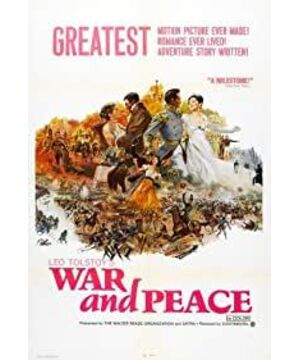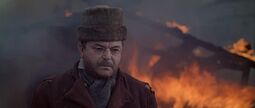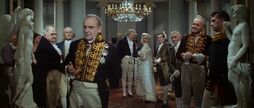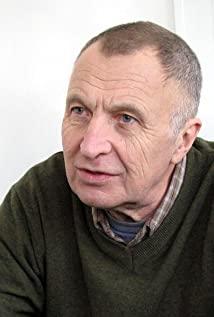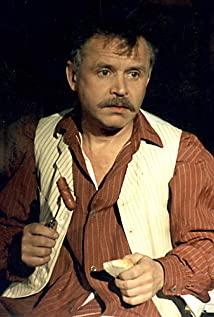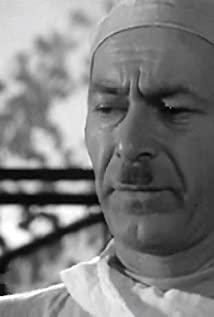To rival and ultimately humble King Vidor's exceedingly palatial adaptation of Tolstoy's WAR AND PEACE (1956), an Audrey Hepburn star vehicle from the Tinseltown, USSR goes for broke with its own version, entrusted in the hands of Sergey Bondarchuk, himself a WWII veteran and cinema generalist, lavishes it with a hefty budget and its principal shooting lumbers over a four-year span, the resultant film is a four-part epic, in toto running over 7 hours and ranked among one of the most expensive movies ever made.
There are three chief protagonists here, all from Russian upper-crust, Prince Andrei Bolkonsky (Tikhonov), Countess Natasha Rostova (Saveleva) and Count Pierre Bezukhov (Bondarchuk himself), each name is be christened as the subtitles of the four parts (with the third one is simply named The Year 1812, when Napoleon's army invades Russia). Andrei and Pierre are best friends in St. Petersburg, the former is trapped in a loveless marriage and joins the Imperial Army to fight against Napoleon in 1805, whereas the The latter is on sufferance of his illegitimate status until his father claims him his favorite in his dying bed, afterwards Pierre also enters a matrimony that doesn't bode well with Hélène Kuragin (Skobtseva, Bondarchuck's wife), in time,Andrei is injured in the Battle of Austerlitz and returns home just when his wife Lisa (Vertinskaya) dies in travail, leaving him a son, in the meantime, Pierre tastes the first experience of blood during a duel with Fedor Dolokhov (Yefremov), Hélène's alleged lover .
4 years later in Moscow, a battle-scarred Andrei's spirit is revivified by Natasha, attending her first ball at the tender age of 16, and a promise of conjugal bond comes with a proviso, Natasha must wait for a whole year during which time Andrei goes abroad, to appease the his frowning father, Prince Nikolai Bolkonsky (Ktorov, magisterially stern but also pliant to be flippant if he tries to make a point), the separation finally takes a toll on an impressionable Natasha, who is enchanted by Anatol Kuragin (Lanovoy), Hélène's skirt-chasing brother, their elopement is nipped in the bud and Andrei calls off the engagement, Natasha suffers from a nervous breakdown, but her dolor is alleviated by Pierre's affection.
When French army invades Russia in the dog end of the Napoleonic Wars, both Andrei and Pierre participate in the Battle of Borodino and witness the carnage firsthand, both survive but Andrei is terminally wounded but before he gives up the ghost, he and Natasha manage to reconcile, while a disgruntled Pierre remains incognito in the city after Napoleon's army enters Moscow, left ablaze by the fleeing Russian army, spoiling for an opportunity to assassinate the emperor once and for all, only it is not in his power to alter the history, and he ends up as a prisoner and marches for month with the retreating French army in the dead of winter, his final reunion with Natasha is roundly hard-earned.
Plot-wise, the tome's many byplays are appositely abridged in favor of projecting the focal points preponderantly on the aforementioned triad, and Bondarchuk and co. constructs the Russian high society with a subdued palette, eerily sepulchral when someone is in extremis, in place of Hollywood glossiness and smoothness, compositions are fluid (even split-screen is not divided 50/50), the motions of the camera are often haphazard, ghost-like, gliding or swooping restlessly among the large ensemble, as if to invoke a presentiment of something ominous, ready to pounce upon the fragile graciousness and peacefulness at short notice, almost everyone looks out-of-sorts under the overlaid slap, only Natasha is exempted, initially, as a sprite full of vitality and youth, curiously seeking out for a kiss among the verdure, a symbol of hope,beauty and innocence coruscates against drabness and solemnity that exuded by the male persuasion.
The intermittent peace has lost its luster and allure, but as regards the horrific war, that is where Bondarchuk's film rip-roaringly pushes the envelope, the sheer magnitude of its deployment is an indelible spectacle itself, to say nothing of the expressive sweep of its aerial shots, the reification of supernal, mind-bending consciousness of flow, and the smoke-and-fog infused mise-en-scène where flames often flare up in the foreground while tracking shots trundles through the hellscape of battlefields or a ravaged city, all concomitant with the sonorous, pathos-ridden score and human wailings, war and peace, what do you choose, dear onlookers?
As per the cast, one cannot help feel that Bondarchuk is visibly on the wrong side of Pierre's age, and his slightly wooden, halting mannerism does not do justice to the renowned character, it is hardly conceivable under such onerous duty as the director, he has to take on the leading role himself, that said, ballerina Saveleva is a heart-stealer with her dainty likeness of a young Audrey Hepburn and Tikhonov also fares much better in his stoic impressiveness.
To all intents and purposes, this USSR passion project is cinematic undertaking in the highest order, a resounding testament to counter USA's monopoly on churning out sumptuous epics, and Bondarchuk's film distinctly boasts a much liberal, Dionysian modus operandi that is in sympathy with its country's venerated and long-lasting heritage of montage-pioneering, a must-see that Tolstoy would smile in his grave and the jumping-off point of asking ourselves this cardinal question “how should one live a moral life in an ethically imperfect world?”.
referential entries: Emil Loteanu's THE SHOOTING PARTY (1978, 6.4/10); Akira Kurosawa's DERSU UZALA (1975, 7.7/10).
View more about War and Peace reviews


